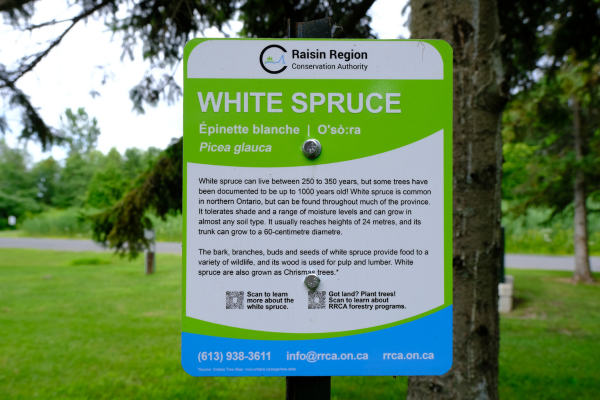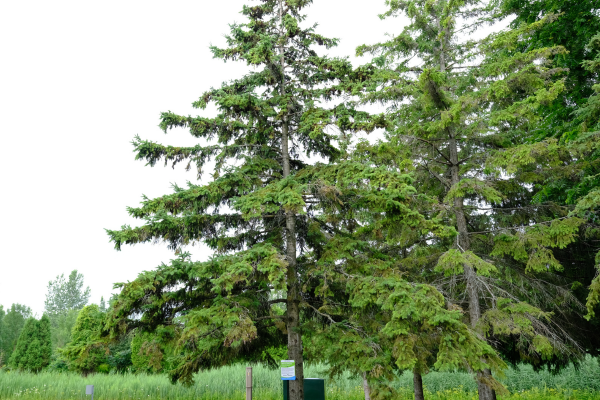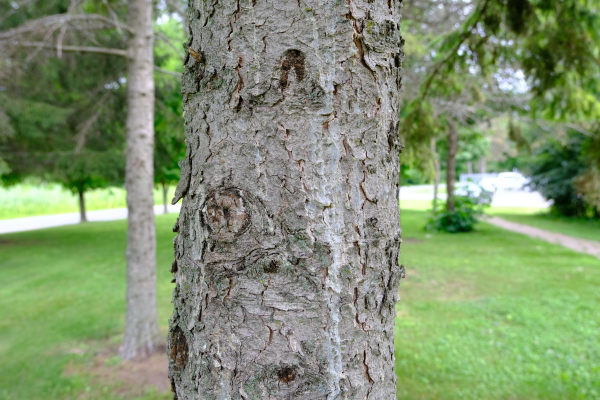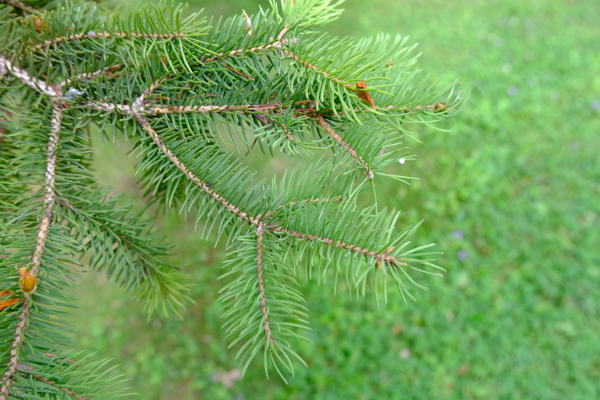Scientific name: Picea glauca
Picea = Latin name for wild pines in ancient writings
glauca = From Greek for "greenish blue" or "glimmering"
The white spruce is commonly seen growing in both northern and southern Ontario. It grows very well in the far north and can even be seen along the arctic tree line (the northern limit of tree growth). Often visually confused with other pine and fir species, white spruce can be easily differentiated by its characteristic four-sided needle. When rolled between your fingers, all four of the sides can be felt clearly. White spruce acts as a food source and provides habitat to a wide range of species including deer, rabbits, porcupines, small rodents, and birds, who feed on their bark, branches, buds, and seeds. Black bears have even been known to strip away the outer bark layer and feed on the inner sapwood.
White spruce can grow in a broad range of conditions. It tolerates a wide range of moisture levels and can grow in almost any soil type. White spruce also tolerates all light conditions and can grow in both sun and shade. White spruce seedlings are particularly sensitive to frost and as such should be planted in areas more protected from wind when young. White spruce can live anywhere between 250 to 350 years, but some have been documented to have lived upwards of 1000 years old!
White spruce is a popular species for use as a Christmas tree, with its short and stiff needles providing a good support for ornaments and great needle retention compared to other spruce species. This tree is also an important commercial tree species in Ontario, being used as lumber and for pulp and paper. Some elegant uses for their timber include being used in the construction of boats, airplanes, and barrels, as well as the sounding boards in pianos and for the bodies of violins. To see how paper is made from white spruce, check the video "How Paper is Made"
Sources:
OMNR, 2022. Ontario Ministry of Natural Resources: Ontario Tree Atlas. [online] Available: https://www.ontario.ca/page/white-spruce
McKinley, C. 2022. White Spruce. National Christmas Tree Society. [online] Available: https://realchristmastrees.org/education/tree-varieties/white-spruce/
University of Guelph. The Arboretum White Spruce - Picea glauca. [online] Available: https://arboretum.uoguelph.ca/thingstosee/trees/whitespruce
%20938-3611%20info%40rrca_on_ca%20rrca_on_catrees%20(400%20%C3%97%20200%20px)%20(1).jpg)





 The needles are up to 2cm long, with four distinct sides and are arranged in a spiral around each twig.
The needles are up to 2cm long, with four distinct sides and are arranged in a spiral around each twig.